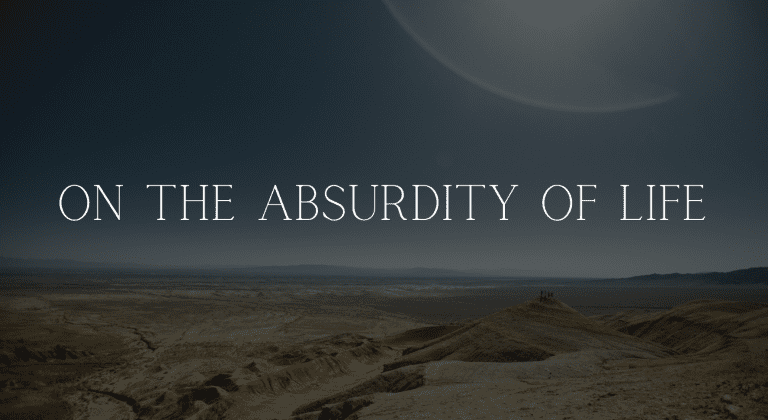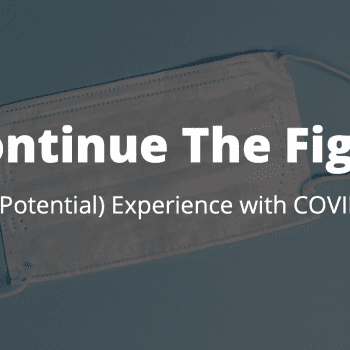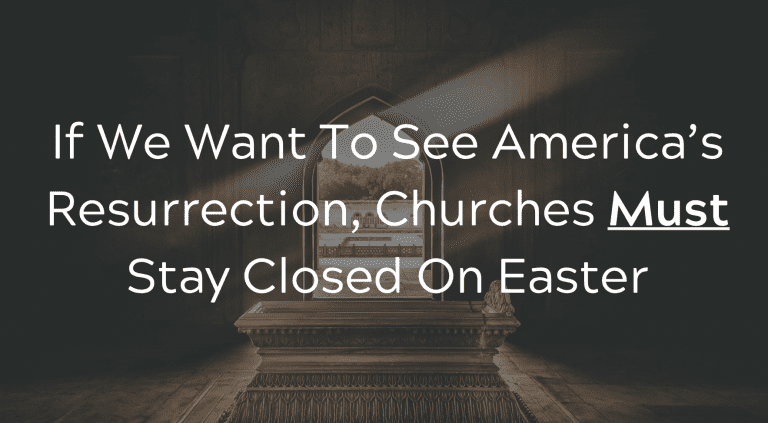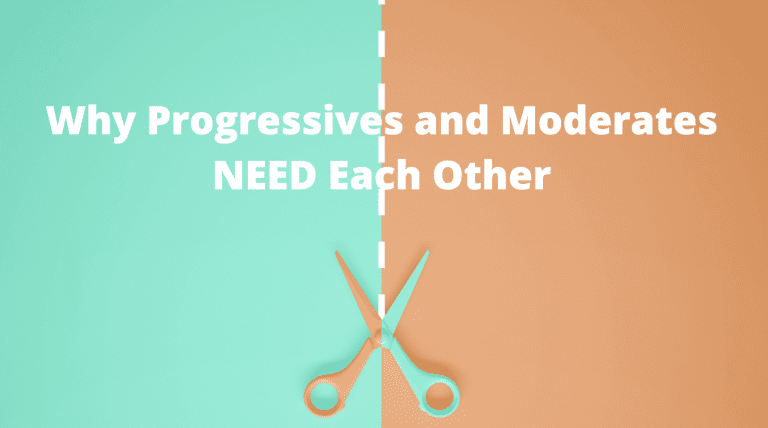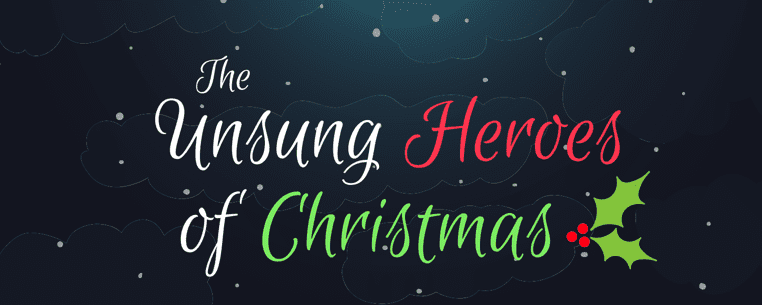 Have you ever had one of those moments when you’re talking to a group of friends and you do a certain manurism, you say at certain phrase, or you react in a certain way and then, for just a moment, time seems to stop…
Have you ever had one of those moments when you’re talking to a group of friends and you do a certain manurism, you say at certain phrase, or you react in a certain way and then, for just a moment, time seems to stop…
And you see yourself. You hear yourself. That thing you just did. That thing you just said. The way you just said that…
Is exactly like your mother. Or your dad. Or your great aunt Sally.
And as soon as that realization hits, you say “Oh no! Who have I become?!”
That’s not even to make a judgement on your parents or family… its simply to say that many of us try not to be exactly like our parents. But when you spend years of your life around somebody, it is inevitable that they will shape you.
That they will have an impact on how you think, how you speak, and who you are in the world.
For better or worse, the people that surround us, the families of our origin, and the families that we choose, they shape us, they make us who we are.
We’re entering in to week three of our Advent series called “The Unsung Heroes of Christmas” where we are exploring all of the people on the peripheries of the Christmas story who we don’t often focus on, but whose stories shape and have a vital impact on the birth of Christ.
Thus far, we’ve looked at the life and example of Mary, we’ve looked at Elizabeth, and we’ve looked at Zechariah. Each one of these individuals played a key role in making the miraculious birth of Jesus 2,000 years ago happen
Today, I want to introduce you to another group of individuals that often get ignored in the Bible but without whom the Christmas story could have never happened.
If you have a Bible, turn with me to Matthew 1. If you don’t, turn your eyes to the screen as I read:
This is the genealogy of Jesus the Messiah the son of David, the son of Abraham:
Abraham was the father of Isaac,
Isaac the father of Jacob,
Jacob the father of Judah and his brothers,
Judah the father of Perez and Zerah, whose mother was Tamar,
Perez the father of Hezron,
Hezron the father of Ram,
Ram the father of Amminadab,
Amminadab the father of Nahshon,
Nahshon the father of Salmon,
Salmon the father of Boaz, whose mother was Rahab,
Boaz the father of Obed, whose mother was Ruth,
Obed the father of Jesse,
and Jesse the father of King David.
David was the father of Solomon, whose mother had been Uriah’s wife,
Now, I know you all think I am crazy right now. But how many of us actually have read this portion of the Gospel of Matthew before? I must admit, prior to this sermon series, I probably have never read this whole thing…
But lets keep going. I promise I have a point.
Solomon the father of Rehoboam,
Rehoboam the father of Abijah,
Abijah the father of Asa,
Asa the father of Jehoshaphat,
Jehoshaphat the father of Jehoram,
Jehoram the father of Uzziah,
Uzziah the father of Jotham,
Jotham the father of Ahaz,
Ahaz the father of Hezekiah,
Hezekiah the father of Manasseh,
Manasseh the father of Amon,
Amon the father of Josiah,
and Josiah the father of Jeconiah and his brothers at the time of the exile to Babylon.
After the exile to Babylon:
Jeconiah was the father of Shealtiel,
Shealtiel the father of Zerubbabel,
Zerubbabel the father of Abihud,
Abihud the father of Eliakim,
Eliakim the father of Azor,
Azor the father of Zadok,
Zadok the father of Akim,
Akim the father of Elihud,
Elihud the father of Eleazar,
Eleazar the father of Matthan,
Matthan the father of Jacob,
and Jacob the father of Joseph, the husband of Mary, and Mary was the mother of Jesus who is called the Messiah.
Thus there were fourteen generations in all from Abraham to David, fourteen from David to the exile to Babylon, and fourteen from the exile to the Messiah.”
So. There are at least43 names that I just read. And my math may well be wrong.
And how many of you recognized some of these names?
Famous names like Abraham, David, Solomon, Ruth, Jacob, Boaz, Jesse.
These are some of the most influential people in the history of the Jewish religion, the patriarchs and matriarchs that established the laws and set the example of what it looked like to live a faithful life before God.
And all of these people are in the lineage of Jesus.
And beyond names like Abraham and Ruth, there are at least 35 names of people that if we’re honest we probably never have heard of. Names like Jeconiah, Shealeiel, Azor, Zadok.
Yet these too are real names of real people who lived life and without whom, Jesus Christ could never have been born.
Every person and every life has incredible importance. If one person had not existed, if one person vanished from this lineage, the rest of the line would fall apart. It couldn’t have happened.
But in God’s grand plan, each of these people came into existence, lived their life, and whether they knew it or not, they played an integral part in bringing the Messiah into the world.
Isnt that crazy to think about?
And yet, at some deep level, we know that this is true even of within our own lives.
Each one of us is the product of a long line of people who have come into the world, who have lived life, and whose DNA is still within us and a part of us.
Even if it wasn’t through physical copulation that our families and lineage came about, each one of us has a series of relationships that have made our lives and existence possible. Each one of us has a biological and a chosen family.
And those people fundamentally shape not only our lives, but will shape the lives of those who come after us.
For some of us, that’s really difficult to think about.
Maybe we’ve come from a long line of people who haven’t been the most upstanding members of society. Maybe we come from a lineage of people that we’d rather not associate with or relate to.
Maybe the lineage of people we’ve come from has pushed us away, and chosen to disconnect from us.
Whatever the case, if we’re honest, we know that in some deep way we are shaped by the people in our lives and in our past.
And we know that our lives and how we live them will impact those who come after us- whether biological kin or those we’re connected to through relationship.
Our lives are all fundamentally interconnected. And therefore, what we do, and what those connected to us do, impacts all of us.
What’s really interesting when we look at the geneology of Jesus is how we can see the ways in which God orchestrates the most unlikely group of people to be the one through which salvation would be brought to world.
Of course, people like Abraham, the great patriarch of Judaism, Islam, and Christianity, who lived a life of extraordinary faith and has become an example to billions of people throughout history- that seems to make sense when we think about the lineage of Jesus, right?
Or Ruth, a faithful woman whose love and commitment to her mother-in-law Naomi has made her an icon for the Jewish people for thousands of years.
But what about some of these other people?
Consider David— a warrior-king, who had his commander, Uriah, killed to cover up his adulterous affair with Uriah’s wife who became pregnant; and had at least eight wives.
Or Rehoboam who had 18 wives, 60 concubines and whom the Scripture says in 2 Chron. 12:14- “did evil because he had not set his heart on seeking the Lord.”
Or Abijah— in his three-year reign, 1 Kings 15:3 says he “committed all the sins of his father had done before him; his heart was not fully devoted to the Lord his God”
I could go on and on throughout the list, but the point is that in the midst of people that are seen as holy saints in the lineage of Jesus, there are just as many people that could be considered really bad apples- and many times, there are people who are both considered saints and have committed extraordinary evil and immorality.
These are the people that God chose to place within the lineage of the Messiah, the pure and holy one sent to redeem humankind.
I don’t know about you, but that seems a little strange to me.
Actually, that seems actually quite encouraging to me.
Because I come from a long lineage of people that haven’t always been the best examples. My family has a long history of alcoholism, of abusing one another, of crime and of deep hatred. Sure, there are some incredible people in my family line as well, but when I look back, I can just say that what I find isn’t all that encouraging.
Can anyone relate?
And whats most often the case is that as I look back at those who have gone before me and those who surround me and have shaped me as a person, I see a lot of people that are much more complex, that I couldn’t put neatly into a category of “good” or “bad”.
One of the beautiful things about the Christian tradition is that it helps us to remember that humans are complex.
That we’re a complicated bundle of good intentions, pure desire, and selfishness, greed, and sin.
The Protestant Reformer Martin Luther summed up this idea by coining the Latin phrase: simul justus et peccator which literally translates to “Simultaneously a saint and a sinner”.
All of us, according to the Christian tradition, are justified and loved by God. We have the capability to be the hands and feet of God, the light and love of God to our world. And, all of us have the capacity and propensity to be selfish, greedy, and turn away from the path of God towards the path of sin.
This is so fundamental to what it means to be a human being. To be a Christian.
And what’s remarkable is that even Jesus Christ’s lineage demonstrates this in a profound way.The people who made it possible for Jesus to exist, the people whose lives shaped the life of the Savior of the world, they demonstrate the profound complexity of what it means to be a human.
They demonstrate profound examples of what it looks like to live a life of faith and justice, and what it looks like to do evil.
And yet each one of them were necessary and essential to making Christmas a reality…and most of them never had a clue!
Their lives had an impact that changed the world. The way they lived and acted when no one else was around. Their habits, their choices, they actually mattered, for better or for worse.
And in the same way that we are shaped by the habits, the personalities, the examples of those in our lineage, we must assume that Jesus was also shaped in the same way.
For he was fully human, like us. The same realities we face, the same struggles we endure… he did too.
Which means, for instance, that its actually quite likely that Jesus struggled with sexual immorality. That he was tempted in this way- because his lineage is full of serial adulterers and sexually immoral people.
He was also likely tempted with power- in fact, we know he was because the story of the Temptation tells us this is one way Satan tried to entice him to sin. Jesus’ lineage is filled with powerful rulers who often sought to maintain power through murder, conquest, and tyranny.
But the amazing example Jesus leaves for us is this- that while he was shaped by his past, while he was tempted and haunted by the lives of those who went before him, he chose a better way. He chose the way of righteousness. The way of life and justice
And Jesus teaches that everything he did, we can do.
Which gives me great hope and also presents me with a profound challenge.
I come from a line of people that have been inflicted with what we could call generational curses. Habits, behaviors, ideas that permeate my lineage.
Many people, when they look at their past and the examples that they inherit, feel like this is simply their lot in life and they just have to continue in the same cycles that have existed for generations.
But that’s simply not the case.
The Christmas story proves this to us.
And in fact, Jesus wasn’t the first person to break these generational patterns.
Mary and Joseph were.
Mary and Joseph chose to be faithful. They chose humility. They chose not to pursue the path of greed or selfishness, but surrenedered to God.
Sure, they doubted. Sure, they sinned. Butthey decided that they would use their lives to take their lineage in a new direction.
And God blessed them with a son.
And their son continued in their example.
They realized their power. The ability to break generational patterns and curses and go in a new direction.
They realized that how they lived their lives not only effected them, but would effect generations to come. That their life would impact those that surrounded them in day to day life.
And they chose a different path.
And the world was transformed because of it.
Isnt that good news for us?
That our past doesn’t define us. Our family doesn’t define us. That generational curses, patterns, and trends do not define us?
That we have power to make a change. To be a light. To take responsibility and turn the course of our lives and the lives of generations to come towards justice and goodness?
Isnt it good news that Jesus family tree didn’t discredit him from being used by God? But actually made him a perfect candidate to transform the world?
I can relate to a Savior that has a shady family tree.
This is the time of year where most of us end up spending time with our families- either our biological families or our chosen families- and we might feel a bit of anxiety or frustration about being around them.
They may have caused us pain.
They may not get who we are or how we live our lives.
They may not be the greatest examples.
But imagine how things might change if we shifted our perspective a bit, and realized that despite all that they might have done, that God has used them to bring us to where we’re at? And for that, we can have gratitude.
That’s not to justify their behaviors. It’s not to sugar coat the pain they might have caused. It’s not going to automatically make Christmas dinner easier.
It’s more of an excerize for each one of us, that helps change our posture and our experience.
We can look at those around us and be reminded of how God has worked to bring us to a point where we’re walking in a new direction.
How God can and is redeeming our family or our community- through us.
What if we humble ourselves to be reminded that we’re all simultaneously sinners and saints, that everyone has the propensity to do good, to be redeemed?
And that by our example, by walking to the beat of a different drum, we might bring redemption to others in our family?
What if we could see that every single person, every life lived, every story narrated, has culminated in our life? That we’re a product of generations of people? And our lives will impact generations to come?
I am going to admit that this isn’t the easiest path to take.
But as I have worked to change my perspective in my own life and relationships, I have been liberated to relate differently to my past. To my family. To my history.
My dad wasn’t a great father growing up. He caused me a lot of pain and a lot of damage to our family. Damage that I continue to work through until this very day. And yet, as I began to reflect on our family history, I realized that his childhood was also pretty horrendous.
His mom commited suicide. His dad abused him and kicked him out of the house in Middle School. He’s tried to make it in the world on his own. And he repeated the behaviors he learned from those around him.
When I realized that, it didn’t make my childhood better. It didn’t make the pain any less damaging. But it did help me to see that these patterns were generational.
It gave me a little empathy. But more than that, it gave me determination to be different. To change course. To live a different kind of life.
Today, my relationship with my dad is pretty incredible. We talk weekly. He’s stopped drinking. He’s stopped being abusive. I can’t take credit for that- but I can tell you that changing my perspective did have an impact on his life and helped to spark transformation.
And it’s helped me not to feel disgusted when I see my dad’s behavior come out through me- namely his terrible, off-color humor and bad dancing skills.
Because now I realize that my past, my family doesn’t define me, but I also realize that God has used it to shape me and given me the opportunity to redeem our family line.
I really believe that you have this same opportunity.
I really believe that each one of us, by the grace of God, can rise above our history and bring transformation.
I really believe that each one of us, despite mistakes we’ve made, have the opportunity to change course and to walk in a new direction.
This isn’t easy work. But it’s the work of redemption. It’s the work that can change lives and change the world.
Your life has an impact on far more people than you realize. Your choices matter and will matter for generations.
With that responsibility and the reminder of God’s endless grace to help us when we fail, I believe we can walk together through the holidays and towards the new year with determination and hope for the better lives and the better world we can create- for ourselves and for our families
Jesus’ family tree is filled with unlikely candidates for the family of the Messiah, and yet God used each person, even in their failures, to bring about redemption.
And Mary, Joseph, and Jesus chose to walk a different path that forever changed their families trajectory and the trajectory of the world.
So in a sense, each person in that family tree is an unsung hero of Christmas. In God’s mercy and grace, they played a part in the redemption of the world.
Imagine, just imagine, what God can do through your life and your family….
I want to conclude with this quote from Brother Brennan Manning that I think sums up all of our lives and God’s power to use even the most broken people to do extraordinary good:
“When I get honest, I admit that I am a bundle of paradoxes. I believe and I doubt, I hope and get discouraged, I love and I hate, I feel bad about feeling good, I feel guilty about not feeling guilty. I am trusting and suspicious. I am honest and I still play games. Aristotle said that I am a rational animal; I say I am an angel with an incredible capacity for beer.”
We are each simultaneously sinners and saints, and yet God can use our lives to transform the world
Amen?






